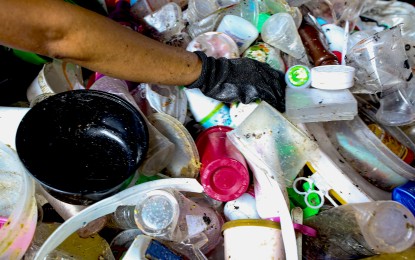DENR: More infrastructure needed to curb plastic pollution
Category : Business | Sub Category : Economics Posted on 2025-06-07 05:39:49

MANILA – The country needs more infrastructure for segregation, recovery, and recycling to properly address the growing plastic waste problem, the Department of Environment and Natural Resources (DENR) said Thursday.
“We need more support, public funds, and private sector’s resources and technical capacity to cover whole waste management services at the local government (LGU) level,” DENR Secretary Maria Antonia Yulo Loyzaga said during the Environment and Natural Resources (ENR) Day 2025 celebration in Makati City.
Yulo-Loyzaga she issued a strong call for a united and urgent action against plastic pollution, citing the Philippines’ critical role in the global fight against environmental degradation.
She emphasized that strong cooperation across sectors and communities is the key to solving the plastic crisis.
“The rapidly increasing levels of plastic pollution represent a serious global environmental issue that has grave consequences to the environmental, social, economic, and health dimensions of our quest towards sustainable development,” Loyzaga said.
She added that tackling plastic pollution demands a unified, bold, and science-based action, as it has also become a climate change issue, as most of the plastics used today are derived from fossil fuels.
Loyzaga said plastics release greenhouse gases (GHG) into the atmosphere, which degrade the environment when unmanaged.
Based on studies, she said that by 2050, the GHG emissions from plastic could reach 56 gigatons, which she said is equivalent to 10-13 percent of the entire remaining carbon budget.
According to the UN Environment Programme (UNEP), plastic production has risen exponentially in the last decades, estimated to be at around 400 million tons per year, and this figure is set to double by 2040.
Loyzaga said the Philippines currently produces around 61,000 metric tons of solid waste daily, of which 12 to 24 percent comprises plastic.
“Filipinos utilize, take note, 163 million plastic sachet packets, 48 million shopping bags, and 45 million thin-film bags daily. 33 percent of that waste finds its way into landfills and dumpsites, and around 35 percent is leaked into the open environment and into our oceans,” she said.
Loyzaga stressed that the Philippines is one of the world’s reported highest contributors to plastic waste.
Available solutions
Yulo-Loyzaga said the DENR is now working with concerned stakeholders, including multilateral development banks such as the Asian Development Bank (ADB) and non-government organizations (NGO) partners such as Clean Rivers of the UAE’s Zayed Foundation (Erth Zayed Philanthropies) to rehabilitate important historical, cultural and economic areas such as the Pasig River, Laguna de Bay and Manila Bay.
Moreover, she said the DENR is enforcing the Extended Producer Responsibility (EPR) Law, which requires companies to collect and recycle 80 percent of their plastic packaging by 2028.
Community efforts
Loyzaga highlighted the daily efforts of the more than 2,300 Estero Rangers and River Warriors who clean up plastic waste from waterways in flood-prone areas of Metro Manila and neighboring provinces.
“We all know that waste management as a whole stems from the heart, which is the home. It also reflects a social and economic structure in our society that must be addressed by knowledge-driven institutional change,” she said.
She then called for a deeper engagement at the local level, including support for microenterprises and waste workers.
“We hope you will join us in this call for swift, bold, and impactful action to combat not just the roots and drivers of plastic pollution,” Loyzaga said.
“Let’s continue to work together to re-imagine, recreate, and regenerate our only home,” she added.








